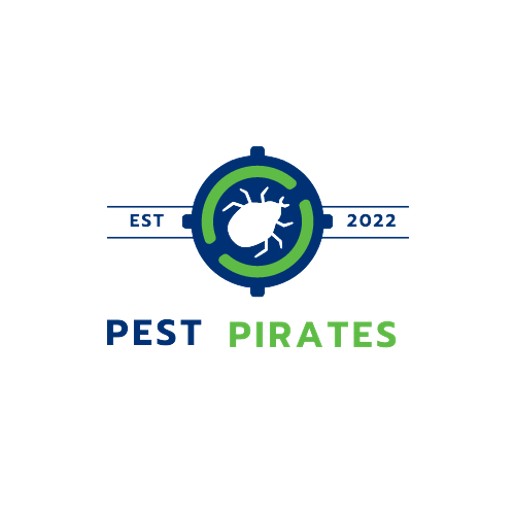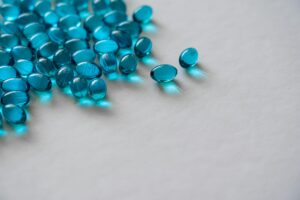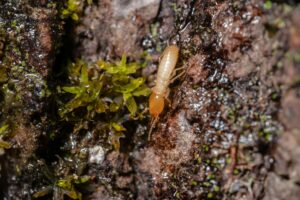
Organic Termite Treatment Options
When you’re facing termite troubles, finding a safe and effective solution is a top priority. Organic termite treatment options offer a way to address infestations without resorting to harsh chemicals. These natural solutions can be particularly appealing if you’re concerned about the well-being of your family, pets, and the environment.
Natural Solutions Overview
Organic termite treatments utilize substances found in nature to combat termite infestations. Unlike traditional methods that may involve toxic chemicals, organic treatments often feature ingredients that are less harmful to non-target organisms and can be used with a peace of mind inside and around your home. For those new to termite control, understanding the types of termites you’re dealing with is crucial. Whether you’re up against drywood termites, dampwood termites, or formosan termites, there are organic solutions tailored to your needs.
Plant-Derived Treatments
Plant-derived treatments are a cornerstone of organic termite control. These treatments are sourced from natural substances and are designed to be toxic to termites while posing minimal risk to humans and pets.
-
Orange Oil: This is a popular choice for organic termite treatment. As reported by Natural Science Exterminating, orange oil contains D-limonene, which is lethal to termites on contact, disrupting their exoskeletons and eggs. It’s primarily effective against drywood termites, wood-boring beetles, and carpenter ants.
-
Boric Acid: Known for its insecticidal properties, boric acid impedes termites’ ability to draw nutrients from their food sources, leading to their demise. It can be applied directly to affected areas or diluted with water for broader use. Discover more about how to get rid of termites naturally using boric acid and other homemade termite killer recipes.
-
Diatomaceous Earth (DE): Composed of fossilized algae, DE is a non-toxic powder that can dehydrate and kill termites through its microscopic razor-edged particles. It’s an excellent choice for those looking for a non-toxic way to eliminate pests, and you can learn more about diatomaceous earth for termites.
-
Beneficial Nematodes: These microscopic roundworms are natural predators of termites. They work by releasing bacteria that are lethal to termites or by parasitizing them directly. Nematodes are not only safe for humans and pets but also for your home’s structure, as they die off after their job is done. For further information on deploying beneficial nematodes for termites, check out our guide.
When considering organic termite treatments, it’s important to weigh the effectiveness of each option against the specific termite issue you’re facing. Some treatments may be more suitable for certain termite species or infestation levels. Always ensure that you’re well-informed about the signs of termite infestation and the best termite baits and barrier products to support your organic treatment plan.
Implementing Organic Treatments
When you’re looking to tackle a termite problem in an eco-friendly way, implementing organic treatments can be a safe and effective solution. Here, we’ll cover various application methods for natural termite control and discuss their effectiveness and key considerations.
Application Methods
Several organic options are available for termite control, each with specific application methods:
Orange Oil
Derived from orange rinds, orange oil is a widely recognized natural pesticide that contains D-limonene, known to exterminate termites on contact. Natural Science Exterminating suggests directly applying orange oil to affected areas or injecting it into termite galleries in wood.
Boric Acid
Boric acid acts as a stomach poison for termites and can be used as a dust or in a diluted liquid form. As a dust, it can be applied into termite entry points, while the liquid form can be sprayed over infested wood or soil around your home. Agro Pest Pros offers instructions for proper dilution and application.
Diatomaceous Earth (DE)
This powdery substance can be sprinkled around the perimeter of your home, near termite mounds, or in spaces where termites are known to frequent. DE works by cutting through the exoskeleton of the termites, leading to dehydration and death. It’s critical to use food-grade DE to ensure it’s safe for use around humans and pets.
Nematodes
These microscopic worms are natural predators of termites. They can be introduced into the soil around your home where they seek out termite larvae to infect. Once the nematodes have eliminated the termites, they die off, posing no further risk to your environment.
Vinegar and Lemon Juice
A mixture of vinegar and lemon juice creates an acidic solution that can kill termites on contact. This can be sprayed directly onto the termites or on areas where termites are suspected to be active. Regular application can help deter future infestations.
Effectiveness and Considerations
The effectiveness of organic termite treatments can vary based on the extent of the infestation and the type of termites you’re dealing with. Here are some considerations to keep in mind:
-
Target Species: Different organic treatments may be more or less effective depending on the types of termites you’re facing. For instance, orange oil is particularly effective against drywood termites but may not be the best solution for subterranean termites.
-
Infestation Severity: Organic treatments are often most effective for smaller infestations. Larger, more established colonies may require multiple treatments or even a combination of methods, including professional assistance from a reliable termite control company.
-
Safety: While organic treatments are generally safer for humans and pets compared to chemical options, it’s still crucial to follow the application instructions carefully. Some substances, like boric acid, can be harmful if not used correctly.
-
Reapplication Frequency: Natural treatments may require more frequent reapplication compared to chemical termite treatments to maintain their effectiveness. Regular monitoring and termite inspections are important to ensure the infestation is under control.
-
Preventative Measures: Combining organic treatments with preventative measures, such as using termite-resistant building materials and adopting landscaping practices to deter termites, can enhance long-term control.
By considering these factors and choosing the right organic termite treatment options, you can effectively manage termite infestations in your home while minimizing environmental impact. Don’t hesitate to seek professional advice if you’re unsure about the appropriate treatment for your situation.




